Willy Wonka & The Chocolate Factory: Lessons for Parents and Children
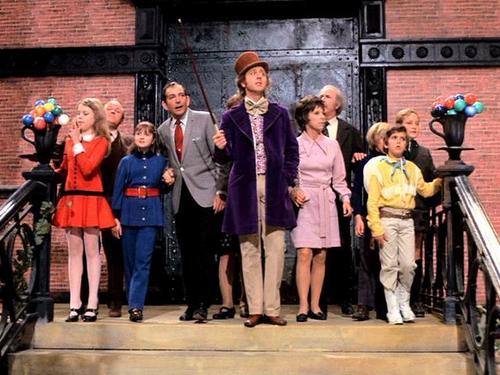
Based on Roald Dahl’s beloved 1964 novel, Willy Wonka & The Chocolate Factory (1971) can be found in many parents’ movie collection. With an uplifting story and an imaginative world abound with candy, singing orange men, and unseen inventions, the film has something for the whole family, from the youngest child to the oldest grandparent. Perhaps less apparent than the colorful world in which it is set, however, are the lessons embedded in the movie, which are about the parent/child relationship and how to raise children to “be good.”
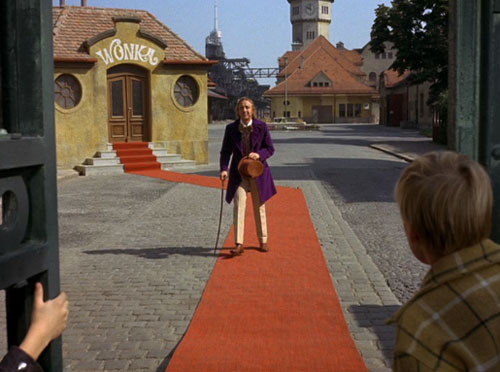
Described by the review aggregator, Rotten Tomatoes, as “a black comedy,” 1 Willy Wonka & the Chocolate Factory tells the story of Charlie, a poor young boy who wins a contest that allows him to enter Willy Wonka’s fabled chocolate factory, which has been closed to the public for many years. While inside, he and his grandfather, along with four other children and their parents, are given a tour of the various wonders that make Wonka’s famous candies. Along the way, four out of the five bratty children are punished in various ghastly ways for violating the ethics of the factory. Though unconventional in its tactics, Willy Wonka & The Chocolate Factory offers up valuable lessons for children and for the parents who are likely to be watching the film with them.
Brattiness is Bad
Perhaps the most apparent lesson that the film presents to its young viewers is that nothing good comes from being a brat. While Charlie, who is (mostly) well-behaved, makes it through the entire tour without issue, the other four children each show their true colors at some point and are punished accordingly. These penalties are physically apparent, making it easy for even the youngest viewers to visualize the negative outcomes of bad behavior.
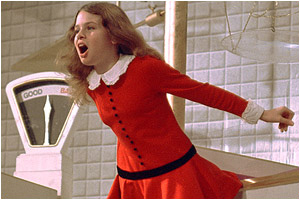
For example, Veruca Salt, the spoiled daughter of a billionaire, demands that her father buy her one of Wonka’s geese that lays golden eggs for Easter. When her father attempts to explain to her that the geese are not for sale, she rudely demonizes him and Wonka, making a mess of the factory before jumping up onto the machine designed to tell the good eggs from the bad ones. She is deemed “a bad egg” and is dropped down the garbage chute. Wonka nonchalantly tells her father that the chute leads to the furnace, and he throws himself down after her.
As the children learn from having to suffer the physical consequences of their brattiness, Wonka’s oompa loompas wag their fingers at the parents, humiliating them by singing about their apparent failures. After Veruca is eliminated from the group, they sing
“Who do you blame when your kid is a brat
Pampered and spoiled like a siamese cat
Blaming the kids is a lie and a shame
You know exactly who’s to blameThe mother and the father” 2
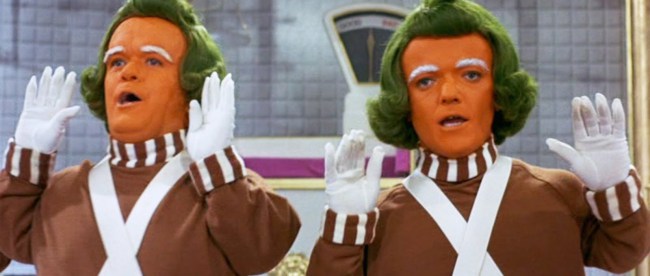
Though Veruca is the one who suffers for her actions, blame is clearly placed on her parents, who have spoiled her and allowed her to be a brat. In this case, as with the other children who do not complete the tour, child audience members are warned to behave, and their parents are shown the potential impact of permissiveness on their children.
This isn’t to say that the film means for children to believe that they’ll be thrown down a garbage chute and into a furnace if they misbehave; however, Wonka seems to be expecting incidents like this one to occur, as sadistic as that may seem. He expects nothing less than for bratty children and bad parents to suffer the consequences in his factory. That is part of his lesson.
Indiscretions May be Forgiven
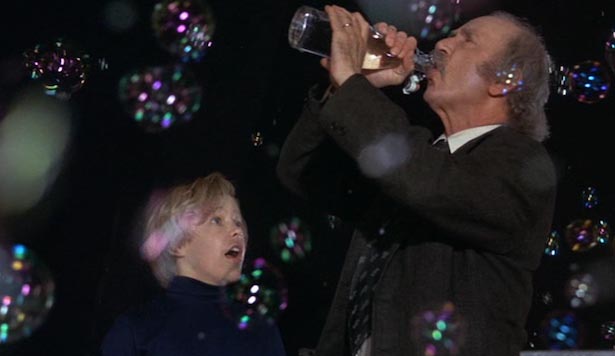
Willy Wonka & the Chocolate Factory also teaches children that, while brattiness is unacceptable, indiscretions may be forgiven if they are honest about their mistakes. At one point in the film, Charlie and Grandpa Joe secretly sample some fizzy lifting drink, against Wonka’s warning not to. Thinking that the theft went unnoticed, they continue on until Charlie is the only child left on the tour and are baffled when he does not receive the lifetime supply of chocolate that he was promised when he won access to the factory.
When Grandpa Joe asks about the chocolate, Wonka goes off on what has become his famous rant, exclaiming:
“Under section 37B of the contract signed by [Charlie], it states quite clearly that all offers shall become null and void if – and you can read it for yourself in this photostatic copy – ‘I, the undersigned, shall forfeit all rights, privileges, and licenses herein and herein contained,’ et cetera, et cetera… ‘Fax mentis, incendium gloria cultum,’ et cetera, et cetera… Memo bis punitor delicatum! It’s all there! Black and white, clear as crystal! You STOLE Fizzy-Lifting Drinks! You BUMPED into the ceiling, which now has to be washed and sterilized, so you get… NOTHING!!! You lose! GOOD DAY, SIR!” 3
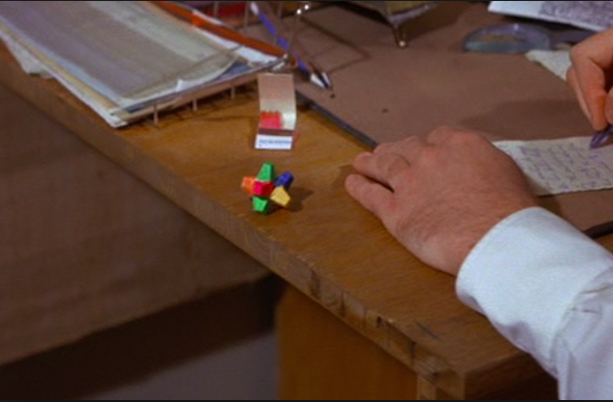
Though Grandpa Joe berates Wonka, calling him a “crook,” a “cheat,” and a “swindler” and threatening to turn the top secret everlasting gobstopper that Charlie received earlier in the tour over to a spy, 4 Charlie passes the ultimate moral test when he returns the candy to Wonka instead of trying to get even with him. This honesty, which proves that Charlie is not a brat like the others, prompts Wonka to forgive the indiscretion and name Charlie the heir to his candy empire, revealing that this had been his intention all along.
Had Charlie stolen the gobstopper and turned it over to Slugworth, the spy, he would not have been forgiven, and he would not suddenly have received everything that he ever wanted. This climactic moment in the film shows children that their mistakes may be pardoned if they are honest, and it teaches parents that raising children to have strong ethical principles will allow them to be successful when opportunities present themselves.
Parenting Styles

If the diabolical punishments suffered by the children in the film serve as fair warnings to young audience members, then the enigmatic Willy Wonka, whose own parents are never seen or mentioned, and his fantastical factory are the teaching agents for parents.
According to science writer and former Cambridge University behavioral scientist, Dr. Paul Martin, there are four main parenting styles, but only one of them makes for happy, “good” children. 5
Two of the parents in Willy Wonka & the Chocolate Factory belong in the “permissive parenting,” category. Permissive parents, according to Dr. Martin, are those that are “responsive but undemanding and permissive.” They are “warm and loving but lax, setting few clear boundaries.” 6 Again, the example of Veruca Salt’s parents is an appropriate example. Rather than disciplining their daughter, Mr. and Mrs. Salt enable her bratty behavior, giving her everything she could ever want and purchasing enough Wonka bars to guarantee her entrance into the factory.
Similarly, Augustus Gloop’s parents allow him to consume obscene amounts of candy, giving him whatever he wants to eat all the time without question. He is permitted to be a glutton, the trait which is his undoing inside of Wonka’s factory, without regard for his behavior or his health.
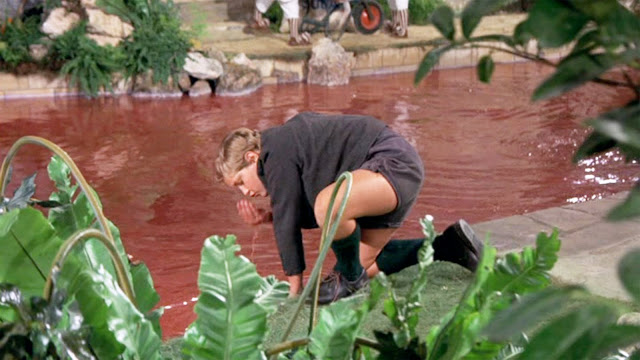
Violet Beauregarde’s parents belong in the authoritarian category, thus explaining Violet’s rudely competitive nature. According to Dr. Martin, authoritarian parents are those who are “parenting style which is more demanding but less responsive to their children’s real needs.” 7 When Violet’s father is interviewed on TV about his daughter having found a golden ticket, he uses his screen time as free advertising for his car dealership, thus showcasing his aggressive, demanding nature. These qualities are reflected in his daughter Violet, who uses her air time to brag about setting a world record in chewing gum and to demean her best friend, whose record she beat in the process.
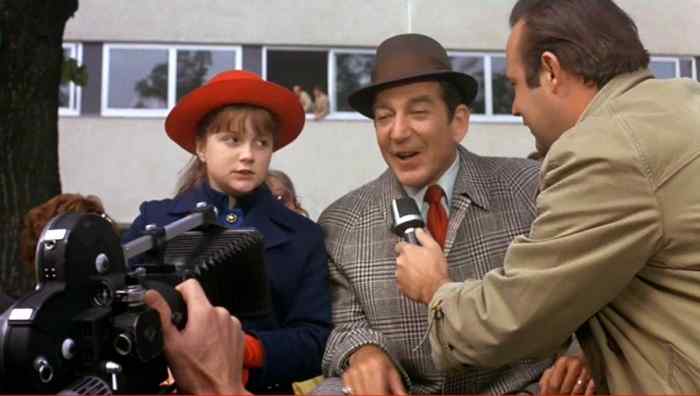
Mike Teevee’s parents fit into the category of disengaged or uninvolved parenting, a style that characterizes parents who are “unresponsive, undemanding, permissive and set few clear boundaries, largely because they don’t really care very much.” 8 Mike is left to watch TV all day, even taking his meals on the couch, without significant parental interaction. His parents never demand that he spend his time on other things, likely because they don’t care enough to do so.
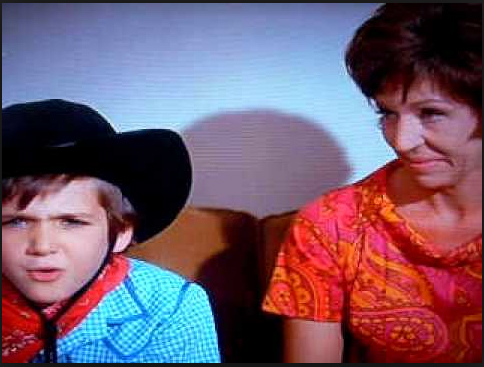
Lastly, Charlie Bucket’s parents can be placed into the category of “authoritative parents,” the only parenting style, according to Dr. Martin, that produces “good” and happy children. These are parents who “keep a close eye on their children, provide them with plenty of support, set firm boundaries, and grant considerable freedom within those boundaries.” 9 Charlie’s parents are responsive to his needs while setting boundaries, requiring him to work to help out the family. They nurture his need to dream by allowing him to buy some chocolate but not more than is healthy or reasonable. These boundaries are partially a product of their financial situation as well as their parenting style. As he is the only child on the tour who was raised by authoritative parents, he is the only “good” child who behaves without constantly needing to be given more.
In the end the parents who have done a poor job raising their children are taught valuable lessons about parenting, while the one child whose parents have raised him properly is given the opportunity to succeed beyond his wildest dreams.
To Conclude: Keeping the Cycle Going
The lessons on the parent/child relationship that are present in Willy Wonka & the Chocolate Factory serve both demographics in question, showing children the consequences of bad behavior and expressing the importance of support and boundaries to parents. Young viewers are taught that nothing good comes from being a brat and that honesty in the face of misbehavior may prompt forgiveness, while parents learn the importance of maintaining an authoritative parenting style and not allowing their children to act like brats.
In the case of the parents whose children don’t complete Wonka’s tour, the lessons that they and their parents learn initiate a cycle of good parenting, a cycle that the film seeks to spark for its viewers. If parents raise their children properly, then their children will grow up to raise their own children properly, and so on.
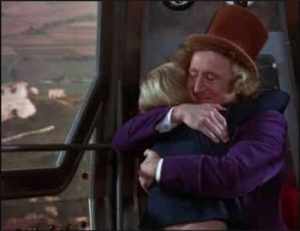
Works Cited
- “Willy Wonka & the Chocolate Factory.” RottenTomatoes.com. (n.d.). ↩
- Stuart, Mel (director). Willy Wonka & the Chocolate Factory. Film. Paramount Pictures. 1971. ↩
- Stuart, Mel (director). Willy Wonka & the Chocolate Factory. Film. Paramount Pictures. 1971. ↩
- Stuart, Mel (director). Willy Wonka & the Chocolate Factory. Film. Paramount Pictures. 1971. ↩
- Martin, Paul. “What kind of parent are you?” TheGuardian.com. 2005, Feb. 23. ↩
- Martin, Paul. “What kind of parent are you?” TheGuardian.com. 2005, Feb. 23. ↩
- Martin, Paul. “What kind of parent are you?” TheGuardian.com. 2005, Feb. 23. ↩
- Martin, Paul. “What kind of parent are you?” TheGuardian.com. 2005, Feb. 23. ↩
- Martin, Paul. “What kind of parent are you?” TheGuardian.com. 2005, Feb. 23. ↩
What do you think? Leave a comment.











Great movie, great points in the post!
I love the idea of positive lessons learned from Charlie, rather than what I usually take, the truly horrible lessons learned from the rest of the Golden Ticket crew.
Thank you for the material, it is great. I’m going to share it in honor of the 100th anniversary of the birth of Roald Dahl in 2016
I always missed these things as a kid, but they are so clear now!
This is fantastic. Such a good way to look at Willy Wonka & The Chocolate Factory.
A few years ago, I asked my students to reflect on this book. One of my gifted 3rd graders wrote about a lesson she had learned, that through faith, all things are possible. She talked about Charlie having enough faith to reach into a television set to retrieve a candy bar, about Grandpa Joe having faith in himself to get out of a bed he had not gotten out of in years, and about Mr. Wonka having faith that somewhere in the world there was a child who would be able to keep the spirit of the factory alive. She compared the example of Charlie reaching into the television to the faith we need to have in order to survive in this world…faith to reach out and venture into the unknown (like her mom did by taking the three children and walking away from an abusive husband and father), faith to reach out and follow our hopes and dreams wherever they may lead (like her older cousin did when she packed up and moved to New Mexico to pursue a career in art), and faith to reach out and ask for help (like her mother did when they were thrown out of their apartment and had no where to go).
This little girl used to carry this book with her. She used to call it her “chocolate Bible” because it showed her how to live her life.
That’s a moving story. I love third graders sometimes. The ones I deal with are pretty good themselves but we never looked at Charlie, unfortunately.
This is excellent! It is a great family story with some good life lessons.
I loved that book.
I can’t even tell you how awesome this is, especially since I love Willy Wonka (especially for his quirk and imagination….although honestly the original Oompa Loompas have always scared me, haha).
Great job on this article! Excellent message and delivery.
Well done. Yes I remember watching the movie with my kids, and this article will be passed around the dinner table.
Keep up the good work.
Well done! I’m glad you wrote about a film/book that so many people find to be simply a fantastical children’s film/book–there is so much to discover and so much depth to Dahl’s work!
You added so much depth to a film/book that I never really cared for. It defiantly has made me look at the material in a different light.
Money isn’t the key to happiness. I love that movie!
These are simple and basic rules to live by, but sadly seem to have diminished in our society.
This is a great article. Willy Wonka really had (and has) a lot to teach our world.
Great post! So many childhood literary lessons come to mind.
Simply wonderful book.
Willy Wonka! I guess you could say, “Life is like a box of chocolates; you just never know what you’re going to get but if you act with integrity you get your self-respect and dignity – and sometimes the golden key to the chocolate factory.”
Wonderful work examining a childhood classic! I like how you integrated the chart on parenting styles into your argument.
Nice article. I like how you pointed to Charlie’s honesty, and I could argue, that his grandfather, who allowed for such theft to begin with, failed as a person when he raised a threat, whereas Charlie was up front and honest. Does this perhaps means Charlie is now a better person than his parents before him?
Thanks for sharing this.
Spot on!
Nice refreshing take on Willy Wonka.
We all have to be honest and fair and treat other people even better than we expect to be treated. I believe that you are never too little to make a big difference in this world and that everyone has to teach their kids that if they do it the right, honest, and fair way they will grow up to be amazing leaders! I believe youth are the leaders of tomorrow but, as Charlie shows (and I always say), we are the leaders of today.
Fabulous & fun article at the same time!
Wow, this article is a great reminder of the lessons from Willie Wonka for kids and adults alike.
Great article. This is a wonderful platform that is a great source of inspiration and hope. All good wishes, Laura.
Lovely… very simple truth!
This is an insightful interpretation. I was raised with the aid of Willy Wonka, a thesis I hadn’t considered until now! Truly, I watched this movie from as young as four up to age ten on a semi-regular basis. What enraptured me was the visuals. Those bright purples and electric blues, they set a mood. The variety of settings from one scene to the next, the unusual families, and the moody dramatic music, all five senses get nabbed. The edible wallpaper! The trippy boat ride! The candy land of abundance! The tiny keyboard and flute! It’s a deliciously unusual bouquet of adventure wrapped around a narrative of influence and consequence between child and parent.
Roald Dahl, what a story teller! Subliminal messages that seemingly slip past us as children, through sensory import, later engrain lessons of morality to the both old and young alike.
I’m really happy to have read about this fresh take on an old story. Still a lot to learn from it! Thanks!
I’ve always felt this way but was never able to quite find the words. Kudos to you
Wow, this was one of my favourite movies growing up. It’s very rare to see a movie like this nowadays, one that is marketed towards kids while not sacrificing the opportunity to provide valuable moral principles.
Willy Wonka and the Chocolate Factory was one of my all time favourite movies as a child. Although it is a movie meant to be enjoyed lightheartedly, you have brought up many life lessons that it has included as well!
I always loved watching this film when I was younger- even though the unfortunate events that the four kids experienced horrified me! For me, the severity of the outcomes that the children experienced from them acting spoiled/bratty/behaving inappropriately helped me gain a fundamental understanding that those kinds of behaviour shouldn’t be tolerated (even in adults too). Reading this analysis was fun and enjoyable, especially because I think it’s spot on. Awesome!
This was one of my favourite movies when I was a kid, and you bring up some interesting points about the message of the film, ones that I’ve also thought about in some passing form or another while thinking about it. I think these messages are just as pertinent as ever if not more so in today’s tolerant society.
I met this woman who was quite anxious that her daughter grow up to be just like Veruca Salt. *sigh* She clearly need to read this article.
Given that I have only watched this movie as a young child, I had never deduced these lessons on my own. In retrospect they seem quite apparent, but as a child I was blinded by the endless candies and chocolates. I think the film offers a good lesson on morality but does not represent reality in a wholesome way. While of course the punishments are not meant to be taken literally, their mere existence is not something that can be assumed. That is, the world is lined with injustices. The good are not necessarily rewarded, just as the bad are not always punished.
Well done, especially the section about parenting styles. I’d be curious to see how that would hold up with the 2005 remake, since Johnny Depp’s Wonka has an obviously authoritarian father.
I read Roald Dahl novels to my kids when they were young and remember watching this movie with several of them. A good essay.
In Stuart’s adaptation of Dahl’s story, the flaws of the parents are clearly exaggerated to make a point: spoiled children are the result of bad parenting. Although the four winners of the golden tickets (not including Charlie, of course) in the movie are rotten, their parents are even more detestable and annoying.